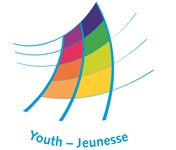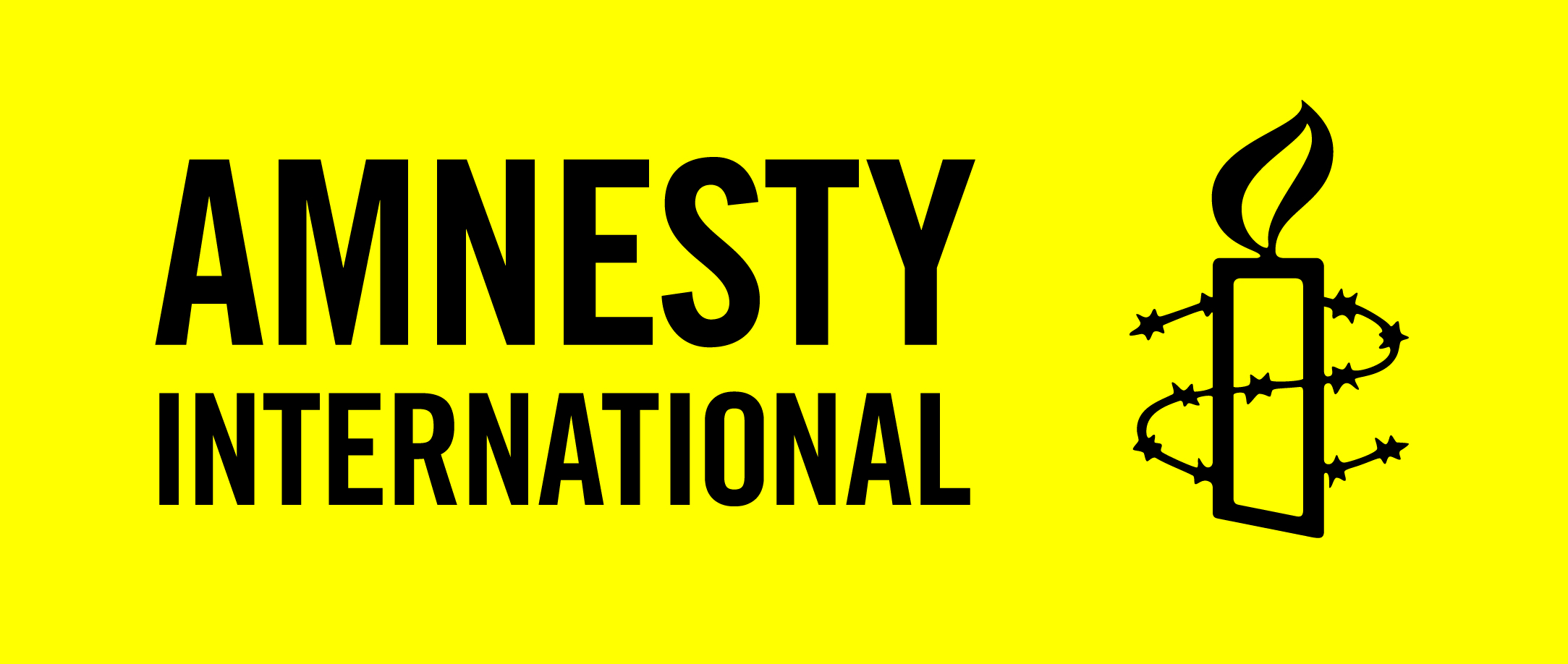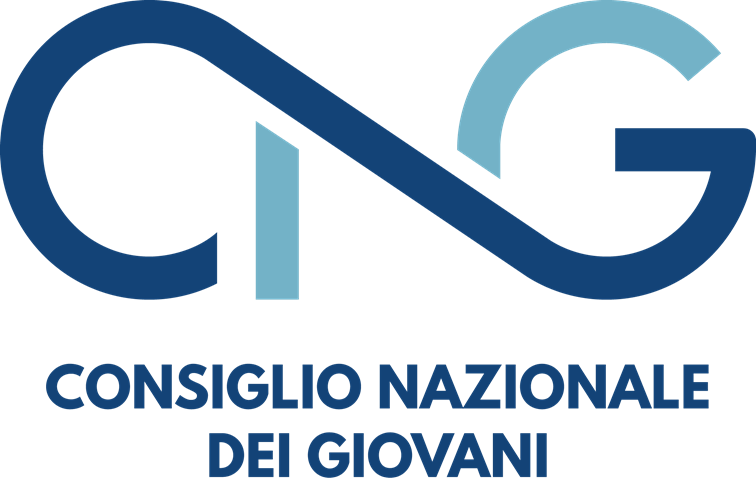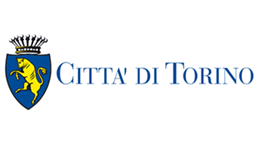Working groups
I. WORKING GROUPS on the review of the Council of Europe Charter on Education for Democratic Citizenship and Human Rights Education
A. Formal education practitioners
coordinated by Sulkhan Chargeishvili, Georgian Association of Youth Workers
Registration for working groups is closed.
B. Non-formal education/youth organisations
coordinated by Ida Kreutzman, Youth Department of the Council of Europe
Registration for working groups is closed..
C. Other non-governmental organisations and institutions (including human rights organisations)
coordinated by Krittika Vishwanath, Amnesty International
Registration for working groups is closed.
D. Policy-makers from the education sector
coordinated by Marta Mędlińska, Amnesty International
Registration for working groups is closed.
E. Policy-makers from the youth sector
coordinated by Dariusz Grzemny, consultant/facilitator
Registration for working groups is closed.
F. Group of Italian stakeholders
coordinated by Silvia Volpi, REDU, Debora Barletta, APICE and Francesca Cesarotti, Amnesty Italy
Registration for working groups is closed.
II. WORKING GROUPS Making sense of Universality, Equality and Dignity in EDC/HRE
1. Addressing antisemitism today
Antisemitism and hatred did not end with the Holocaust; various studies state of their rise in many countries. Antisemitism can manifest in a myriad of ways, including stereotypes and attitudes about Jews, scapegoating, name-calling and bullying, online expressions of bias and hate, swastikas and other hate symbols scrawled in public spaces, antisemitic rhetoric, vandalism in synagogues and Jewish cemeteries. Antisemitism impacts Jewish communities first, but it also impacts negatively society as a whole. Antisemitism is nowadays very present in the social media, pop culture; it also appears in political campaigns.
Guiding questions:
- Are human rights education programmes adequately reflecting the realities and threats of antisemitism today?
- Are human rights educators able to go beyond the memorial/remembrance questions associated to the Holocaust and reflect new forms of antisemitism?
Resource person: Robin Sclafani, director of A Jewish Contribution to an Inclusive Europe
Registration for working groups is closed.
2. All different-All equal: addressing racism, prejudice and ethnocentrism
Human rights education aims at creating a culture of human rights where rights of all people are promoted and respected. It is very often done through challenging people’s viewpoints, their own stereotypes and prejudices, and taking them out of their comfort zone. Through social media, stereotypes and prejudices are reinforced and amplified through hate speech. Anti-racism struggles are always followed by backlashes that nowadays are also characterised by moral equivalence fallacies and confused with notions of “wokeism” and “cancel culture”. The result in some cases is a genuine fear of addressing racism, antisemitism or discrimination/racism against, for example, Muslims or Roma for fear of sparking controversy or conflict in the classroom or outside.
Guiding questions:
- How are human rights educators prepared and supported to integrate antiracism in human rights education?
- How can antiracism approaches be effectively included in human rights education without stigmatising groups of children and young people perceived as perpetrators or victims?
- How to address structural forms of discrimination and ethnocentrism without essentialising ethnical or cultural differences?
Resource person: Hande Tanner, anti-racism coordinator at the Joint Council on Youth (tbc)
Registration for working groups is closed.
3. Democracy and participation in education
Education, both formal and non-formal, had an important role to play in advancing democracy. In order to do so, democracy cannot be only the goal in education but also a method of instruction. Sadly, in many realities, the public education is too often a source of controversy and division, focusing on tests and finger pointing the poor performance of students. Students need to be involved in decision-making in all matters that concern them - from having a say when designing the curriculum, choosing a method of instruction to school governance. All this strengthens participation and support human rights education as education through human rights.
Guiding questions:
- How are human rights educators, including professionals in formal education, equipped and supported to adopt consistent participatory methods and approaches in citizenship and human rights education?
- How real (authentic) is students’ participation in education a process of agency in human rights education? Is students’ participation overemphasised in public discourse and under-valued in practice?
- How can better participation be accompanied by a better understanding of, and adherence to, human rights?
Resource person: Sara Þöll Finnbogadóttir, member of the Advisory Council on Youth
Registration for working groups is closed.
4. Gender equality
Gender equality is central to safeguarding human rights, upholding democracy and preserving the rule of law. Gender equality entails equal rights for people of all genders, as well as equal visibility, and equal opportunities for empowerment, taking responsibility and participating in all spheres of public and private life. While many initiatives have been undertaken for gender equality, we are very far from reaching it. Pay gap, uneven distribution of power or representation, gender-based violence are just a few examples of threats to gender equality.
Gender equality is also a battlefield for cultural wars that seek to undermine universality of human rights of which the geography of the ratification of the Istanbul Convention is a fine example. Instead of a unifying factor – gender equality is an imperative in all societies – it is used as a divisive element to either challenge the “attacks on patriarchy” or to essentialise sexist cultural practices.
Guiding questions:
- Is gender equality supportive of human rights education approaches?
- Is human rights education supportive of gender equality in all contexts?
- How to overcome the undermining of restrictions on human rights education under the cover of “gender theories”?...
Resource person: Maryam Majidova, Gender Hub
Registration for working groups is closed.
5. EDC/HRE and armed conflict
February 2022 ended with the invasion of one member state of the Council of Europe on another member state. Many civilians experienced horrors of war - losing relatives, houses, living in fear, having no access to food or water, becoming refugees. Armed conflicts constitute a huge challenge to exercising human rights, with the basic right - right to live - being threatened. Wars eventually come to an end but human suffering stays. Education, including human rights education, is affected in many ways during armed conflict – students/participants may be recruited to the armed forces, they may lose their lives, educational facilities can be destroyed, education may be used as war propaganda. Human rights education efforts also seem displaced and a sign of powerlessness against the brutalities and sufferings of war. It is often difficult not to embark in logics of conflict and denial of the “enemy’s” humanity when human rights violations occur.
Guiding questions:
- Is calling for the respect of everyone’s human rights enough when confronted with armed conflict?
- What can human rights education do more to prevent armed conflict or promote reconciliation? How?...
Useful Council of Europe documents:
- European Convention on Human Rights
Resource person: Nazarii Boiarskyi, Human Rights Vector (tbc)
Registration for working groups is closed.
6. HRE and digital citizenship education
Technology is an integral part of our lives, especially the lives of young people. Digital methods, tools and platforms, and their unexplored potential in the youth sector, has always created much enthusiasm within the youth field. Digitalisation comes with many benefits but also with challenges to human rights. Is the digital world equally accessible to all young people? Do digital tools enable youth organisations, youth workers or state bodies to “reach out” to marginalised young people?
Just as human rights should be promoted and protected online and offline, human rights education should be available in both spaces. The pandemic generated an exponential increase of the digital environment for education and learning; but this was also often accompanied by a certain fatigue of online instruments. Moreover, online learning does not intuitively support participatory and cooperative learning, central to human rights education, together with critical thinking.
Guiding questions:
- How much of the “digital divide” in human rights education is also a generational divide?
- How can human rights education be effectively practised online?
- If “the medium is the message” how can we democratise or “human rightseducate” the online spaces?
Useful Council of Europe documents:
- Guide to the human rights of Internet users
- Recommendation on Digital citizenship education
Resource person: Council of Europe project on on Digital Citizenship Education
Registration for working groups is closed.
7. EDC/HRE and the climate crisis
Climate crisis directly affects everybody everywhere: it destroys lands, ecosystems, affects food systems, harms humans and damages communities and pushes people to flee. A safe, clean, healthy and sustainable environment is integral to the full enjoyment of human rights, including the rights to life, health, food, water and sanitation. Climate change disproportionately affects the least vulnerable who have contributed less harm to the climate such as indigenous people and small island states but also children and young people who mobilised for taking climate actions - in the end they will suffer more, worse and longer for the damage being done to the climate today. The urgency of this crisis has exposed weaknesses of democratic systems: measures required to address the crisis are unpopular and therefore seldom prioritised. Education is important, but slow as a response. Isn’t it?
Guiding questions:
- How to include issues related to climate change in human rights education? How to practise what we preach about the impact of climate change? How to tackle climate change denial in HRE?
- Can human rights education be part of rapid and emergency measures?
Resource person:
Registration for working groups is closed.
8. Including migration and refugee issues
Refugees and migrants move across borders fleeing conflict, war, persecution, poverty and climate change or responding to labour and skill shortages and demographic changes and seeking better opportunities elsewhere. The response from the states related to accepting migrants and refugees differ - some are more open than the other, some follow international law and some don’t. The deterioration of human rights of migrants and refugees across Europe in the last decade is probably the most alarming indicator of the attack on universal human rights because of the “normalisation” of discrimination, violence and brutality against human beings in need. This also results in migrants and refugees being prevented from accessing and exercising their right to human rights education.
Guiding questions:
- How to respond in human rights education to the challenges and violations of the human rights of refugees and migrants? Is it better to ignore it or to include it?
- How to deal with the strong contrasts or open contradiction between international commitments and social realities?
- How can human rights education respond to, or integrate, these challenges?
Useful Council of Europe documents:
- ECRI General Policy Recommendation N°16 on safeguarding irregularly present migrants from discrimination
Facilitator: Natalia Chardymova
Resource person: Razan Damlakhi, VYRE
Rapporteur: Bernard Maud
Registration for working groups is closed.
9. Mainstreaming EDC/HRE in youth policy and youth work
The Council of Europe Human Rights Education Youth Programme was launched in 2000 with the aim to mainstream human rights education in youth policy and practice. In order to make it a reality, the Council of Europe developed educational tools that can be used directly with young people (Compass, Compasito, Gender Matters, Bookmarks), supported the implementation of Compass tational and regional Training courses, and developed a Charter on EDC/HRE. Human rights education is increasingly visible in youth programmes and projects, but much less so in policies. This puts at risk the sustainability of the efforts for rights-based approaches to youth work, including the right to human rights education. How can we guarantee that human rights education has an important place in youth policies aims and approaches?
Guiding questions:
- Is mainstreaming human rights education in youth policy a reality or an aim?
- What examples of mainstreaming HRE do you know? How effective are they?
- What should be done to secure that nonformal education and youth, often carried out in precarious conditions, integrates human rights education as a medium and long-term process?
Useful Council of Europe documents:
- Council of Europe Charter on EDC/HRE
- Recommendation CM/Rec(2017)4 of the Committee of Ministers to member States on youth work
- Resolution CM/Res(2020)2 on the Council of Europe youth sector strategy 2030
Facilitator: Miriam Teuma
Resource person: Silvia Volpi, Rete Educare in Diritti Umani (tbc),
Rapporteur: Mert Akkas
Registration for working groups is closed.
10. Populism and the future of democracy
We often hear that democracy is in danger. Democracy cannot be taken foregranted, it has to be developed and build all the time. Populism is one of those threats aiming at polarising societies; it draws on nationalist notions of exclusive belonging, the need for closure to protect the “us” (good ones) from “them” (bad ones). The nationalistic, xenophobic, homophobic, misogynistic, and explicitly anti-human rights agenda of many populist political leaders requires human rights workers to rethink many long-standing assumptions. The strategies used so far in human rights work sometimes seem ineffective when faced with populist agenda and discourse. If populism is responding to the sentiments of the people and is supported by popular vote, what can be done to make sure that democracy does not turn against human rights and the rule of law?
Guiding questions:
- How can human rights education tackle populism in general and polarisation in particular?
- How to address populist discourse without legitimising it further or undermining fundamental freedoms of expression and belief?
- Is the rise of populist movements a failure of citizenship and human rights education? If so, what needs to be done differently?
Useful Council of Europe documents:
- European Convention on Human Rights
Resource person:
Registration for working groups is closed.
11. Threats to EDC/HRE: How to act?
Teaching and exercising critical thinking skills in the classroom are an essential requirement for ensuring the goals and aspirations of the Charter on EEDC/HRE. Avoiding critical examination of social issues leave students open to indoctrination, incomplete or misguided learning, and citizen ignorance. Under a range of human rights instruments, governments have obligations to ensure that national education is aimed at strengthening respect for human rights and fundamental freedoms. Yet across the globe efforts are intensifying to censor study of human rights and controversial issues, notably those dealing with the study of racism and cultural diversity in state education. Critical thinking in these subject areas is needed to dismantle systemic racism and to build literacy on gender, sexuality, and identity diversity.
Guiding questions:
- How can human rights be promoted in the school community? How those involved in EDC/HRE at school can be supported?
- How can we advocate for academic freedom in the schools?
- How to strengthen cross sectoral dialogue and partnerships between different stakeholders in EDC/HRE?
Useful Council of Europe documents:
- The Council of Europe Charter on EDC/HRE
Resource person: Nils Muiznieks, Amnesty International
Registration for working groups is closed.
12. The Covid pandemic and the right to human rights education
COVID-19 had an impact on practically all areas of human activity, including the youth sector. The impact of the pandemic and the restrictions imposed on the population had a huge impact on young people - their mental health deteriorated, in many instances the quality of education worsened, they lost direct contact with their peers, they were unable to use youth services. Many young people have "dropped out" of the education system and from youth work. Situations resulting from the anti-COVID-19 measures pose a challenge to human rights, especially the right to education, the right to privacy, freedom from discrimination or freedom of expression. In fact the Covid seems to have made enhanced the visibility of the contradictions of today’s humanity. These contradictions risk seriously undermining the credibility of human rights education discourses and practices.
Guiding questions:
- How important has human rights education been during the pandemic in both the youth and education sectors?
- Is it still possible to learn something from the pandemic for the benefit of human rights and human rights education?
- What is human rights education good for as a vaccine?
Useful Council of Europe documents:
- European Convention on Human Rights
- Revised European Social Charter
Resource person: Elodie Beth Seo, UNESCO, and Maria Teresa Fenoglio, psychologist
Registration for working groups is closed.
13. The role of arts in EDC/HRE
Arts and culture play a fundamental role in the dissemination and comprehension of human rights principles. People learn and experience dignity and human rights with all the senses and not as a theoretical concept. The power of arts to approach human rights issues is still not known enough and should be recognized at all levels of human rights work and activities. Especially young people can be reached and included in human rights activities through arts and arts projects. Arts and human rights education intersect in many ways but divergences are also visible regarding the “access” to arts and artistic communication and the universal dimension of human rights /education
Guiding questions:
- How to “popularise” arts as a contribution to human rights values?
- How to overcome the perceptions of elitism inherent to some arts projects? How can arts support a holistic approach to human rights education?
- What can we do to live the intersectionality of arts and human rights in daily life, more concrete how to bring artists and human rights experts and activists closer to each other?
Useful Council of Europe documents:
- European Cultural Convention
Resource person / facilitator: Marijana Grandits, University of Vienna
Registration for working groups is closed.
III. WORKING GROUPS on Guidelines and priorities for the future of EDC/HRE
1. Guidelines and recommendations for national authorities
Registration for working groups is closed.
2. Guidelines and recommendations for civil society organisations
3. Guidelines and recommendations for formal education sector
4. Guidelines and recommendations for the non-formal education and youth sector
5. Guidelines and recommendations on cross-sectoral cooperation
6. Guidelines and recommendations for the Italian context
7. Guidelines and recommendations for international organisations (Council of Europe, European Union, OSCE, other)







